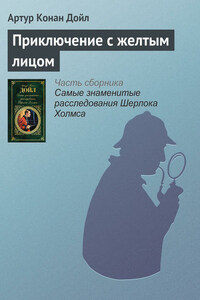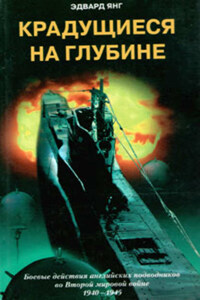Nil sapientiae odiosius acumine nimio.
Seneca.
At Paris, just after dark one gusty evening in the autumn of 18—, I was enjoying the twofold luxury of meditation and a meerschaum, in company with my friend C. Auguste Dupin, in his little back library, or book-closet, au troisiême, No. 33, Rue Dunôt, Faubourg St. Germain. For one hour at least we had maintained a profound silence; while each, to any casual observer, might have seemed intently and exclusively occupied with the curling eddies of smoke that oppressed the atmosphere of the chamber. For myself, however, I was mentally discussing certain topics which had formed matter for conversation between us at an earlier period of the evening; I mean the affair of the Rue Morgue, and the mystery attending the murder of Marie Rogêt. I looked upon it, therefore, as something of a coincidence, when the door of our apartment was thrown open and admitted our old acquaintance, Monsieur G—, the Prefect of the Parisian police.
We gave him a hearty welcome; for there was nearly half as much of the entertaining as of the contemptible about the man, and we had not seen him for several years. We had been sitting in the dark, and Dupin now arose for the purpose of lighting a lamp, but sat down again, without doing so, upon G.’s saying that he had called to consult us, or rather to ask the opinion of my friend, about some official business which had occasioned a great deal of trouble.
“If it is any point requiring reflection,” observed Dupin, as he forebore to enkindle the wick, “we shall examine it to better purpose in the dark.”
“That is another of your odd notions,” said the Prefect, who had a fashion of calling every thing “odd” that was beyond his comprehension, and thus lived amid an absolute legion of “oddities.”
“Very true,” said Dupin, as he supplied his visiter with a pipe, and rolled towards him a comfortable chair.
“And what is the difficulty now?” I asked. “Nothing more in the assassination way, I hope?”
“Oh no; nothing of that nature. The fact is, the business is very simple indeed, and I make no doubt that we can manage it sufficiently well ourselves; but then I thought Dupin would like to hear the details of it, because it is so excessively odd.”
“Simple and odd,” said Dupin.
“Why, yes; and not exactly that, either. The fact is, we have all been a good deal puzzled because the affair is so simple, and yet baffles us altogether.”
“Perhaps it is the very simplicity of the thing which puts you at fault,” said my friend.
“What nonsense you do talk!” replied the Prefect, laughing heartily.
“Perhaps the mystery is a little too plain,” said Dupin.
“Oh, good heavens! who ever heard of such an idea?”
“A little too self-evident.”
“Ha! ha! ha – ha! ha! ha! – ho! ho! ho!” roared our visiter, profoundly amused, “oh, Dupin, you will be the death of me yet!”
“And what, after all, is the matter on hand?” I asked.
“Why, I will tell you,” replied the Prefect, as he gave a long, steady and contemplative puff, and settled himself in his chair. “I will tell you in a few words; but, before I begin, let me caution you that this is an affair demanding the greatest secrecy, and that I should most probably lose the position I now hold, were it known that I confided it to any one.”
“Proceed,” said I.
“Or not,” said Dupin.
“Well, then; I have received personal information, from a very high quarter, that a certain document of the last importance, has been purloined from the royal apartments. The individual who purloined it is known; this beyond a doubt; he was seen to take it. It is known, also, that it still remains in his possession.”
“How is this known?” asked Dupin.
“It is clearly inferred,” replied the Prefect, “from the nature of the document, and from the non-appearance of certain results which would at once arise from its passing out of the robber’s possession; that is to say, from his employing it as he must design in the end to employ it.”
“Be a little more explicit,” I said.
“Well, I may venture so far as to say that the paper gives its holder a certain power in a certain quarter where such power is immensely valuable.” The Prefect was fond of the cant of diplomacy.
“Still I do not quite understand,” said Dupin.
“No? Well; the disclosure of the document to a third person, who shall be nameless, would bring in question the honor of a personage of most exalted station; and this fact gives the holder of the document an ascendancy over the illustrious personage whose honor and peace are so jeopardized.”
“But this ascendancy,” I interposed, “would depend upon the robber’s knowledge of the loser’s knowledge of the robber. Who would dare—”
“The thief,” said G., “is the Minister D—, who dares all things, those unbecoming as well as those becoming a man. The method of the theft was not less ingenious than bold. The document in question – a letter, to be frank – had been received by the personage robbed while alone in the royal boudoir. During its perusal she was suddenly interrupted by the entrance of the other exalted personage from whom especially it was her wish to conceal it. After a hurried and vain endeavor to thrust it in a drawer, she was forced to place it, open as it was, upon a table. The address, however, was uppermost, and, the contents thus unexposed, the letter escaped notice. At this juncture enters the Minister D—. His lynx eye immediately perceives the paper, recognises the handwriting of the address, observes the confusion of the personage addressed, and fathoms her secret. After some business transactions, hurried through in his ordinary manner, he produces a letter somewhat similar to the one in question, opens it, pretends to read it, and then places it in close juxtaposition to the other. Again he converses, for some fifteen minutes, upon the public affairs. At length, in taking leave, he takes also from the table the letter to which he had no claim. Its rightful owner saw, but, of course, dared not call attention to the act, in the presence of the third personage who stood at her elbow. The minister decamped; leaving his own letter – one of no importance – upon the table.”
“Here, then,” said Dupin to me, “you have precisely what you demand to make the ascendancy complete – the robber’s knowledge of the loser’s knowledge of the robber.”
“Yes,” replied the Prefect; “and the power thus attained has, for some months past, been wielded, for political purposes, to a very dangerous extent. The personage robbed is more thoroughly convinced, every day, of the necessity of reclaiming her letter. But this, of course, cannot be done openly. In fine, driven to despair, she has committed the matter to me.”












